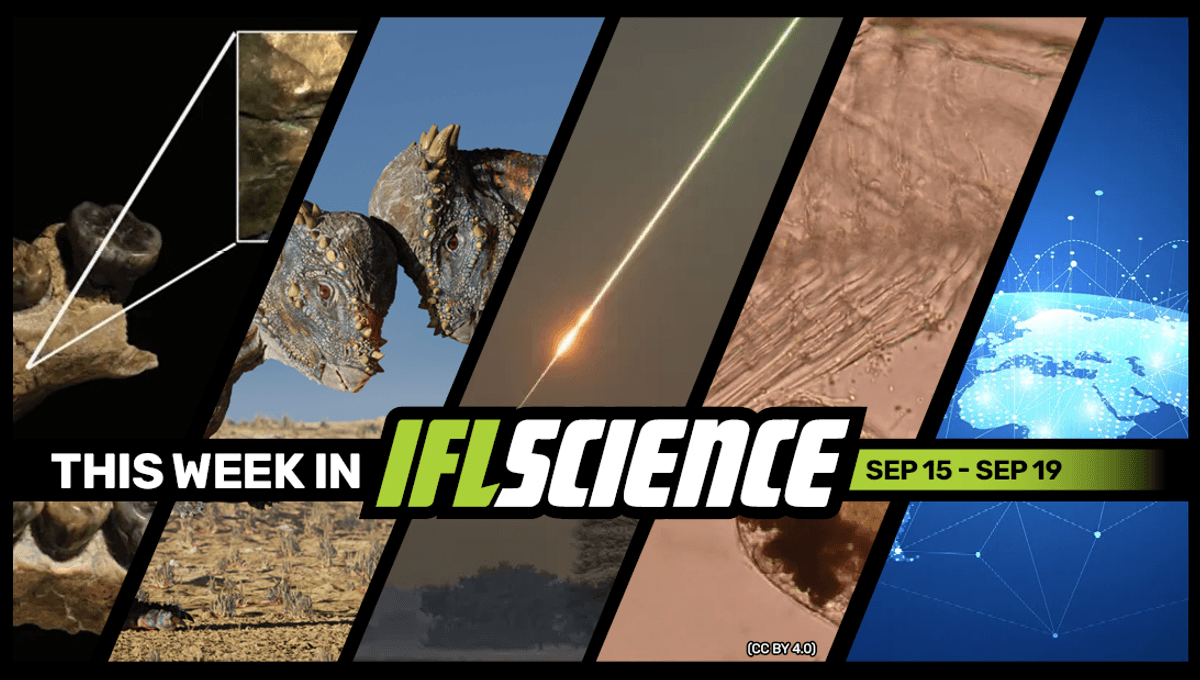-
Noticias Feed
- EXPLORE
-
Páginas
-
Blogs
-
Foros
The First Humans Were Hunted By Leopards, Scientists Have No Clue What These Marine “Y-Larvae” Grow Into, And Much More This Week

The First Humans Were Hunted By Leopards, Scientists Have No Clue What These Marine “Y-Larvae” Grow Into, And Much More This Week
This week, scientists digging in Mongolia’s Gobi Desert have discovered a new species of pachycephalosaur that pushes back their emergence by 15 million years. We now have the first-ever full history of an asteroid, from its discovery to collecting its meteorites, and scientists are baffled by marine “y-larvae” whose adult form remains a mystery. Finally, we explore what Neanderthals actually sounded like, and why it probably wasn’t just grunts and groans.
The rest of this article is behind a paywall. Please sign in or subscribe to access the full content. Around 2 million years ago, prehistoric humans in East Africa turned the tables on the carnivores that had previously terrorized them, learning not only to fend off these predators but also steal their kills, thus replacing them at the very top of the food chain. Generally, the ancient species Homo habilis is credited with making this trophic leap, yet new research suggests that this extinct hominin was actually hunted by leopards and may therefore have been more prey than predator. Read the full story here Scientists digging in Mongolia’s Gobi Desert have discovered a new species of pachycephalosaur. Normally, a new species would be exciting news enough, but this fossil is reshaping what we know about the history of these dinosaurs. Having lived around 108 million years ago, the new-to-science species has pushed back the emergence of these dinosaurs by almost 15 million years. On top of being the world’s oldest pachycephalosaur, the specimen is also one of the most complete we’ve ever found. Alright, overachiever. Read the full story here On February 13, 2023, the sky across France and England was briefly illuminated by a small meteor burning. It was slightly less than 1 meter (3 feet) across and was then known as Sar 2667. It is now asteroid 2023 CX1, the first cosmic object that we have tracked from its discovery to its destruction, and the collection of its meteoric fragments. Read the full story here Meet the Facetotectans, a group of tiny crustaceans that have been raising big questions among biologists. These are the larvae, the juvenile form of this organism. We know how this story goes: larvae metamorphose into adults, sometimes undergoing spectacular changes – tadpoles into frogs, caterpillars into butterflies. The only problem with Facetotectans is that we have absolutely no idea what their adult form even is. Read the full story here There’s a problem with that “March of Progress” picture that’s so often used to illustrate our species’ development: it ends. Human evolution, the image implies, began in apehood and finishes here, with us. We’re done. It’s poetic, but it’s wrong. Evolution, famously, has no end goal – and there’s no reason to assume we’re already at the pinnacle of our species’ journey. In fact, as a new study from researchers at the University of Maine suggests, we might be right in the middle of a major evolutionary shift – and it’s one that’s totally different from anything we’ve seen before. Read the full story here It’s hard enough to know what Neanderthals looked like, let alone sounded like. However, there’s good reason to suspect our extinct hominin cousins were capable of complex language – and not just grunts and groans. The idea that Neanderthals are heavy-browed, brutish cavemen is an outdated one. An overwhelming amount of evidence now shows that, just like us, they were highly intelligent, culturally complex, and emotionally sensitive beings. Read the full story here Have you seen our e-magazine, CURIOUS? Issue 38, September 2025, is available now. This month, we asked, “Are Space-Made Medicines The Future?” – check it out for exclusive interviews, book excerpts, long reads, and more. PLUS, the We Have Questions podcast – an audio version of our coveted CURIOUS e-magazine column – continues. In episode 12, we ask, “Do Humans Have Pheromones?” The Big Questions podcast has returned, and we’re continuing season 5 with episode 7’s big question: Are We In The Anthropocene?Create an IFLScience account to get all the biggest science news delivered straight to your inbox every Wednesday and Saturday.
The First Humans Were Hunted By Leopards And Weren’t The Apex Predators We Thought They Were
World’s Oldest Pachycephalosaur Fossil Pushes Back These Dinosaurs’ Emergence By 15 Million Years
The First-Ever Full Asteroid History: From Its Doomed Discovery To Collecting Its Meteorites
Anyone Know What These Marine “Y-Larvae” Grow Into? Because Scientists Have No Clue
Humans Are In The Middle Of "A Great Evolutionary Transition", New Paper Claims
TWIS is published weekly on our Linkedin page, join us there for even more content.
Feature of the week:
What Did Neanderthals Sound Like?
More content:


